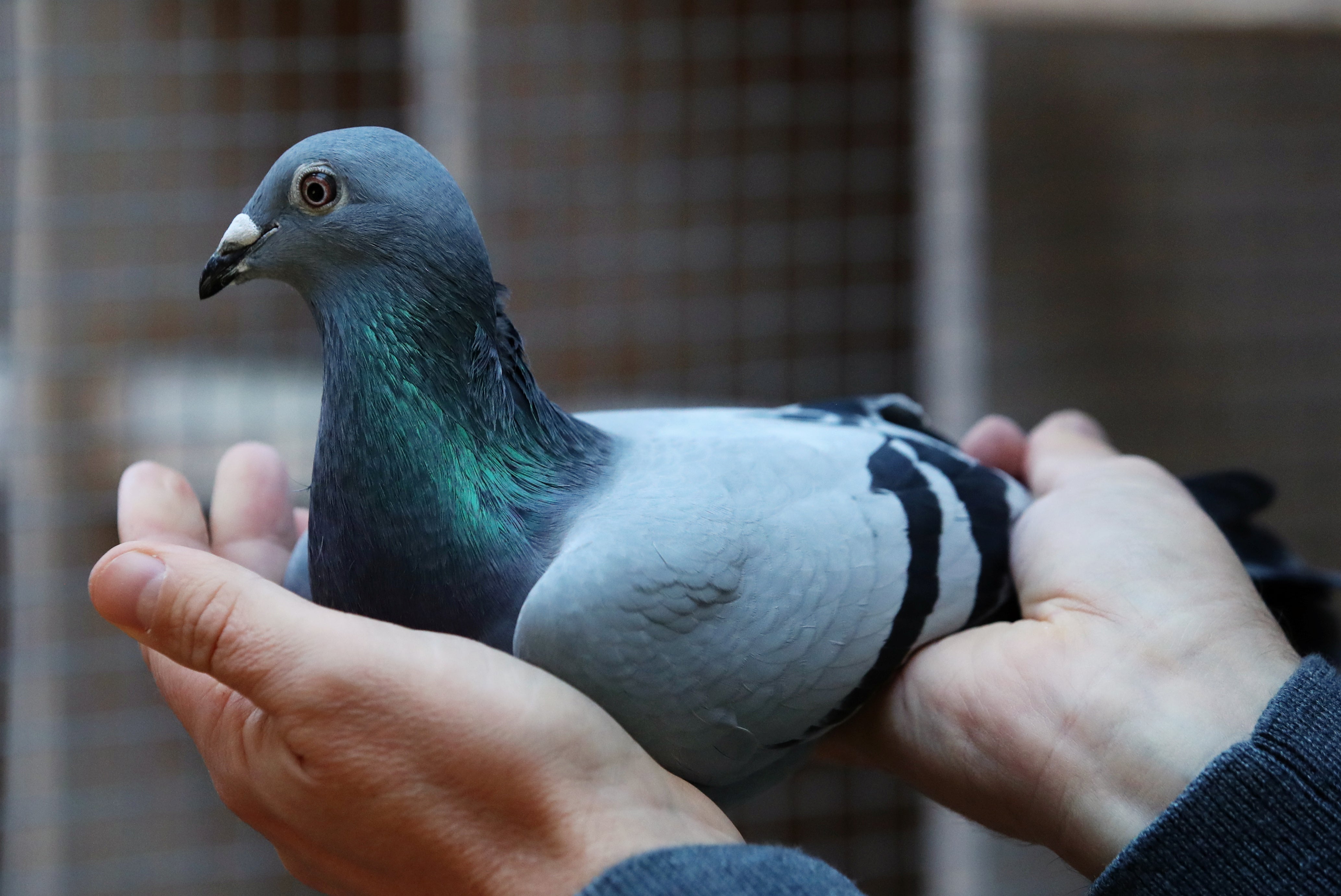Belgian racing pigeon fetches record price of $1.9m
Record price for racing pigeons just 10 years ago stood at a 10th of current figure

Your support helps us to tell the story
This election is still a dead heat, according to most polls. In a fight with such wafer-thin margins, we need reporters on the ground talking to the people Trump and Harris are courting. Your support allows us to keep sending journalists to the story.
The Independent is trusted by 27 million Americans from across the entire political spectrum every month. Unlike many other quality news outlets, we choose not to lock you out of our reporting and analysis with paywalls. But quality journalism must still be paid for.
Help us keep bring these critical stories to light. Your support makes all the difference.
A Belgian racing pigeon has been purchased for $1.9m (approximately £1.4m) by a wealthy Chinese bidder, surpassing the previous record price by $406,000.
A fortnight-long auction ended in a frenzy on Sunday as two Chinese bidders, using the pseudonyms Super Duper and Hitman, drove up the price for the Belgian-bred bird by $325,000.
The prized pigeon was won by bidder Super Duper. Last year, another Belgian racing pigeon named Armando fetched then now-broken record price of $731,000.
The sky-high winning price was proof that the age-old hobby in Western Europe, which used to be associated with working class men, had gained a new lease on life thanks to wealthy foreign players.
Top pigeon breeders with generations of family experience can now sell their birds for eye-popping prices, often to elite Chinese enthusiasts.
The new record holder, a bird named New Kim, was put forward by breeder Gaston Van de Wouwer, who had retired at the age of 76. His son had too busy a professional life to continue the famed pigeon coop.
All 445 birds from the retiree’s coop were put on auction and the overall sale was closing in on $5.8 on Sunday. A second part of the auction ends on Monday, but does not include any bird on par with New Kim.
The breeding of racing pigeons in Belgian is a long-standing industry, and they have garnered a reputation as the best breeders in the business. This is thanks to generations of experience as well as the density of a network where many breeders can organise races close together.
Pascal Bodengien, head of the Belgian pigeon federation, told The Associated Press: “Everybody is interested in our pigeons.”
He said Belgium had over 250,000 members in the federation after World War II, but now, there are just 18,000.
Pigeon breeding is not a short-term endeavour and can take decades of constantly mixing and mating the birds to become an expert at genetic breeding. The birds require constant attention and do not have off days.
Mr Bodengien said: “To be the best, it has to be your life’s work. For some, it may seem boring. Day in, day out. Winter and summer, always those pigeons.”
But with the resurgence of interest thanks to a rise of business wealth in China and an appetite for gambling, pigeon racing could attract new breeders into the market. Just a decade ago, the record price for a pigeon stood at a tenth of New Kim’s price.
Interest in pigeon breeding was welcomed, but Mr Bodengien also warned new challengers to be patient and offered a reality check.
“Anybody thinking about getting into our sport to get money out of it had better think again and move to another sport,” he cautioned.
Subscribe to Independent Premium to bookmark this article
Want to bookmark your favourite articles and stories to read or reference later? Start your Independent Premium subscription today.





Join our commenting forum
Join thought-provoking conversations, follow other Independent readers and see their replies
Comments